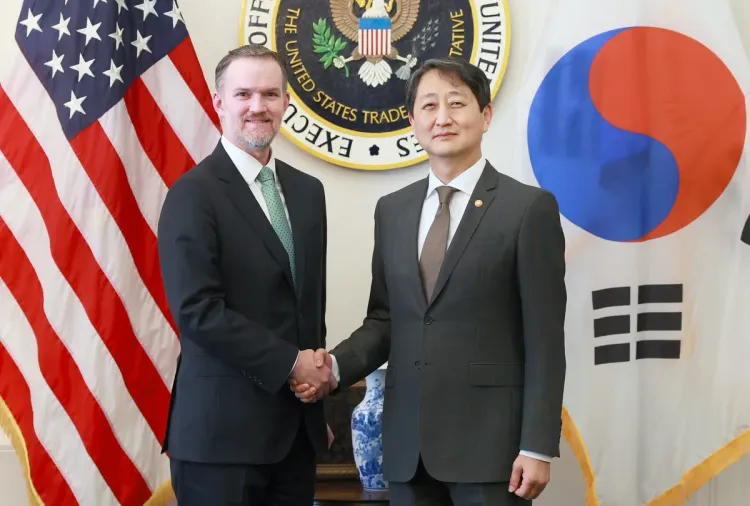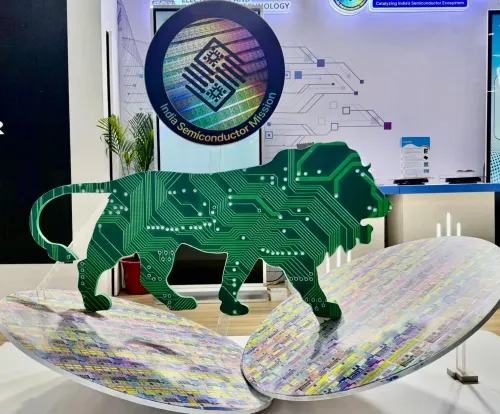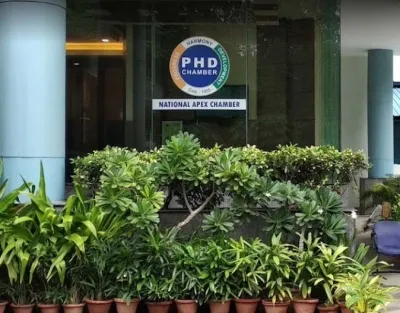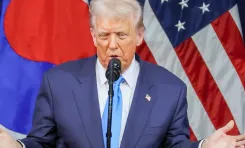South Korea and US to Establish Consultative Groups for Tariff Talks

Synopsis
Key Takeaways
- South Korea and the U.S. to create consultative bodies.
- Focus on shipbuilding and energy cooperation.
- Discussions on tariffs and non-tariff barriers.
- Operational channels will begin this week.
- Trade officials to communicate almost daily.
Seoul, March 4 (NationPress) South Korea and the United States have reached an agreement to establish working-level consultative bodies aimed at enhancing bilateral collaboration in the shipbuilding and energy sectors, as well as to facilitate discussions regarding Washington's new tariff framework, as stated by Seoul's industry minister on Tuesday.
South Korea stands as the inaugural nation to initiate such working-level consultative bodies with the new U.S. administration concerning tariff talks and bilateral cooperation. Industry Minister Ahn Duk-geun mentioned in a press briefing following his recent trip to Washington that these channels will commence operations promptly.
The two nations are set to create four distinct channels to explore shipbuilding cooperation, energy collaboration—which includes South Korea's potential involvement in the Alaska liquefied natural gas (LNG) initiative—tariffs, and non-tariff barriers, according to reports from Yonhap news agency.
“Director-level consultative bodies will be operational this week, and the trade minister might visit Washington for face-to-face discussions with U.S. officials as early as next week,” Ahn indicated, adding that trade officials from both countries will maintain communication “almost daily.”
This agreement was established during Ahn's three-day visit to Washington last week, where he engaged with his U.S. counterpart, Secretary of Commerce Howard Lutnick, as well as U.S. Trade Representative (USTR) Jamieson Greer and U.S. Secretary of Interior and National Energy Dominance Council Chairman Doug Burgum, among others, to discuss the new tariff policies introduced during the Donald Trump administration.
Ahn's trip occurred amid rising concerns regarding the U.S. government's intention to implement 25 percent tariffs on all steel and aluminum imports, as well as to introduce reciprocal tariffs on trading partners while considering new tariffs on vehicles, chips, and pharmaceuticals.
“Initiating a negotiation channel with the U.S. was the trip's top priority as we are not engaged in a single-round match with the U.S. but rather a marathon,” Ahn stated.
Ahn emphasized that the South Korean economy has increasingly decoupled from China in recent years while significantly strengthening industrial ties with the U.S., which includes substantial corporate investments in America.
“We informed officials that investments from South Korean companies have just begun, and there are many more planned. For these to proceed as intended, consistency in U.S. policies is crucial,” he remarked, referring to the U.S. CHIPS Act and the Inflation Reduction Act.
The minister also expressed South Korea's interest in participating in the gas pipeline development project in Alaska, a key agenda of the Trump administration, as part of efforts to boost energy imports from the U.S. and reduce its trade surplus.
Trade officials in Washington also welcomed Ahn's suggestion that Korean shipbuilders could produce warships, tankers, and icebreakers for the U.S. on a preferential basis as part of measures to enhance bilateral cooperation in the shipbuilding sector, he added.








